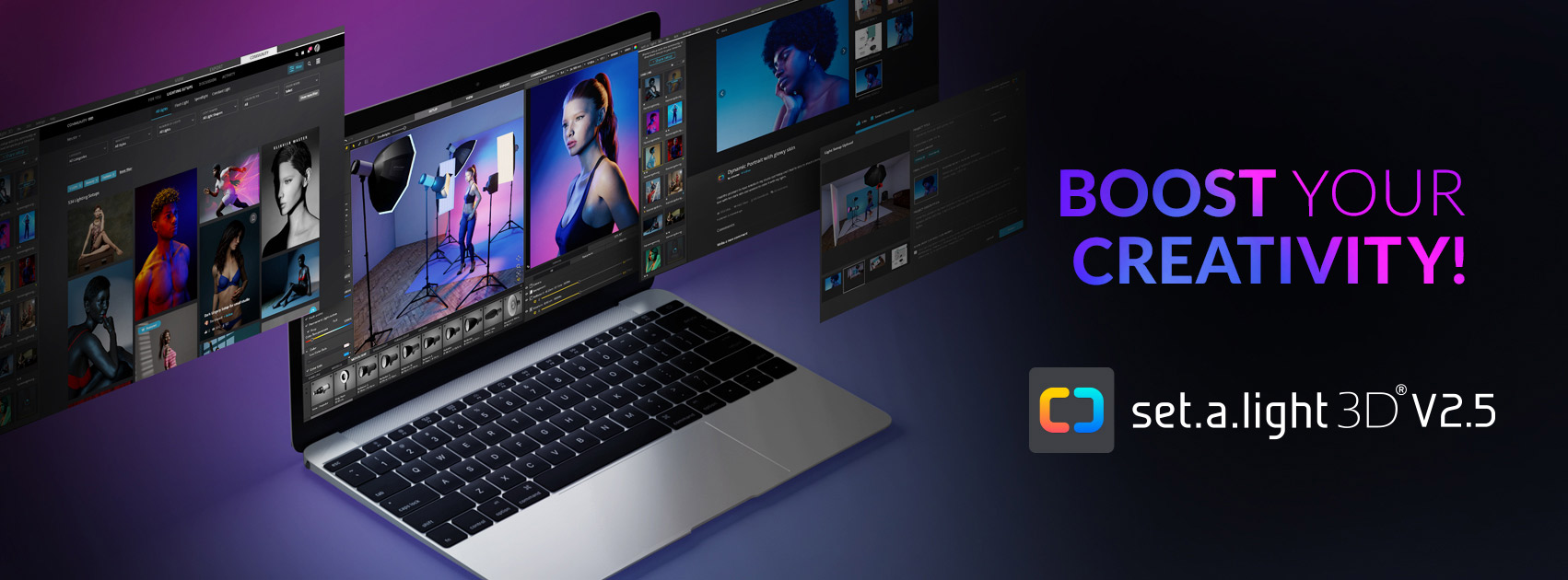Mastering Studio Lighting: Exploring Creative TWO LIGHT Studio Setups with Nathan Elson
Today, Nathan Elson will guide you through four of his preferred ways to harness the power of two lights in the studio. These setups include wraparound lighting, gobo lighting, the art of indirect lighting, and the dramatic effect of rim lighting.
Wrap around Lighting: Crafting Moody Portraits
For those aiming to create moody yet captivating portraits, Nathan's favorite technique is wrap around lighting. This method involves positioning a large light source slightly behind and to the side of the subject, allowing the light to gently wrap around their face and body. The interplay of highlights and shadows adds a sense of mystery and drama to the portraits.
To balance this setup, Nathan introduces a smaller light source, typically a large umbrella, in front of the model. This fills in the shadows and brings out hidden details. In one variation, he even adds a blue gel to the fill light to create a striking contrast between cool and warm tones. The result? Portraits with a unique, enigmatic aura.
Gobo Lighting: Crafting Intriguing Shapes and Patterns
Optical snoots are a go-to tool in Nathan's repertoire for adding depth and texture to his portraits. However, he often combines them with other light sources for enhanced control and balance. In this setup, he employs an optical snoot in conjunction with a rectangular gobo to simulate the effect of light filtering through an open door.
To ensure that the shadows don't overwhelm the image, Nathan introduces another light source – a large umbrella. The key to success here is positioning the fill light directly behind the key light to maintain a consistent light direction. The result is polished, compelling images that tell a unique story.
Constant Lighting with Gobo
In this variation, Nathan swaps out strobe lighting for constant lighting and uses a gobo that resembles tree branches to cast captivating shadows on the subject. A large octabox serves as the fill light, softening the shadows while preserving the intricate tree-like shapes in the images.
This combination transforms the lighting into a natural, harmonious blend that adds a touch of magic to the portraits.
Backdrop as a Light Source: Versatile and Impactful
One of Nathan's go-to lighting setups involves using the backdrop itself as a light source. By placing two medium-deep umbrellas facing the backdrop, he creates a soft, even illumination. The key to success here is positioning the model at the edge of the light's fall-off. If the model is too close to the backdrop, the image will overexpose; too far away, and the unique light shaping characteristics of this setup will be lost. A touch of finesse is required to find that perfect balance.
This versatile setup works for various styles of portraiture, consistently delivering impressive results.
Rim Lighting: Enhancing Depth and Drama
Last but not least, we have rim lighting, Nathan's most commonly used lighting setup for its adaptability. Placing the rim light opposite the key light and using a medium-sized umbrella facing forward creates the desired effect. The rim light accentuates the subject's jawline and cheekbones, effectively separating them from a darker background.
The intensity of the rim light can be adjusted to match the desired level of drama, from subtle to bold.
If you enjoyed this article and want to see more, don't forget to subscribe to his YouTube Channel.










 I'm a commercial photographer based out of Calgary, AB. My YouTube channel will be a place for my behind the scenes, Q&A, and whatever else happens to make it into video form that seems like people might be interested in viewing. Let's Get Connected:
I'm a commercial photographer based out of Calgary, AB. My YouTube channel will be a place for my behind the scenes, Q&A, and whatever else happens to make it into video form that seems like people might be interested in viewing. Let's Get Connected: 













0 comments:
Post a Comment